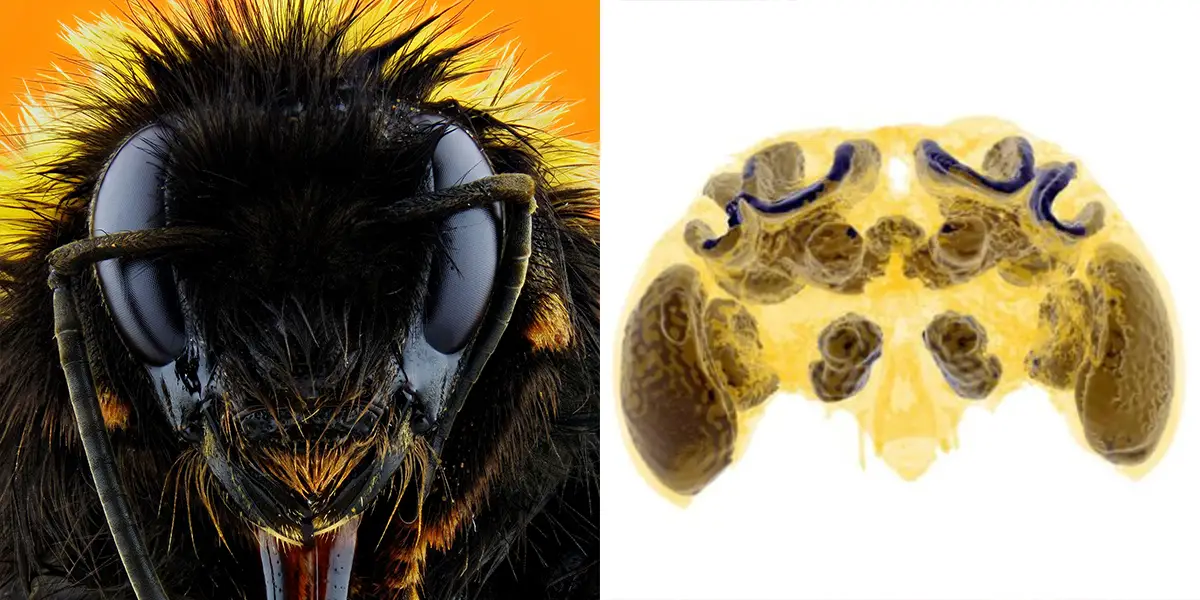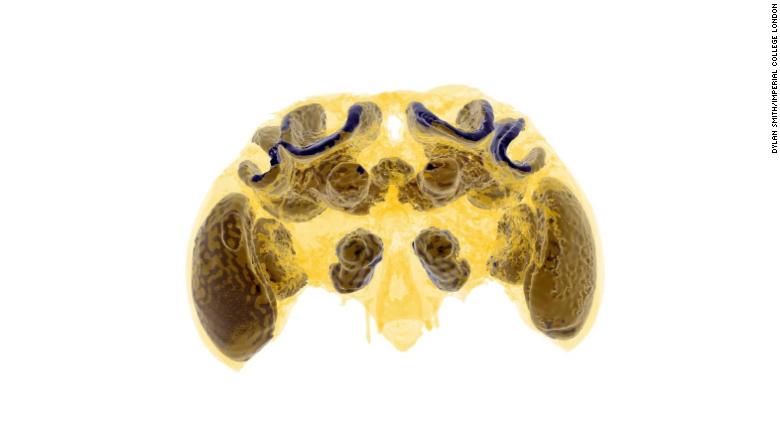New Research Suggests Pesticides Damage The Brains Of Baby Bees
Tags: News

The bee population has seen a decrease of over 30% in the last hundred years in America and Europe. Declining habitat and climate change are among the top reasons for this decline, along with harmful pesticides. This Tuesday, scientists from the Imperial College, London, published a study that showed how baby bees are affected by harmful pesticides. Their brains were scanned and their learning abilities were tested in the test.
The research found that baby bees absorbed the contaminated food brought by working bees into their colony and this went on to make them poorer at performing tasks in their later years. One of the authors of the study, Dr. Richard Gill compared this damage to that suffered by a fetus when harmful substances are present in a womb.
Read: Bees Build Hive For Perfect Temp. And Ventilation When Beekeeper Forgets Frames
This senior lecturer at the Department of Life Sciences at the Imperial College further explained how bee colonies work like superorganisms. This means when something toxic enters a colony, the baby bees present inside will be affected by it. The most worrying part, according to Dr. Gill is that when the baby bees feed on the toxic food, their brains experience stunted growth. When they are older, their brains become smaller and also functionally impaired. Unfortunately, it has been observed that this change is irreversible and permanent.
For the experiment, the researchers used neonicotinoids, a type of pesticide, to spike nectar. This was given to a lab-based bee colony. When the baby bees feeding on this spiked nectar became adults, their learning abilities were tested. The results were then compared with those obtained from bees that came from colonies where the nectar in the wildflowers had not been spiked and also from colonies where bees fed on pesticides only when they turned adults.
The ones who fed on pesticides while in their larvae stage exhibited significant learning disabilities as compared to the ones not feeding on pesticides. In order to test the finding, the researchers then tested the bees to see if they could associate particular smells with food rewards and scored them out of 10 for each successful attempt.
Dylan Smith, another researcher from Dr. Gill’s department at ICL, said that they have found evidence of how pesticides tend to become more concentrated with time inside bee colonies. The research was aimed at understanding how it affects baby bees in the long run, thereby ruining their prospects. Dr. Gill said that their impaired learning ability will make it very difficult for worker bees to forage in the wild which could turn catastrophic for the whole colony.
Around 100 baby bees who were involved in the study had their brains scanned. Micro-CT scanning technology was used and it showed that the ones exposed to harmful pesticides had less developed brains. To be precise, the portion known as the mushroom body was smaller in these bees.

The mushroom body is believed to be the one controlling the learning ability in all insects. A smaller mushroom body is associated with impaired learning ability which affects their performance. This further supports the idea that pesticides are the real culprit behind many bees’ poor performance in colonies.
Dr. Gill further said that their research shows that the role pesticides play in the declining number of bumble bees and other natural pollinators might have been underestimated. The researchers are working continuously to find how not just pesticides but habitat loss and climate change also affect the numbers and how they interact. Dr. Gill explains that these pesticides are affecting the baby bees who then have to go out and fight against extreme weather and habitat loss.
You can learn more about this research here.
IMAGE FEATURED: Johan J.Ingles-Le Nobel
Leave Comment: